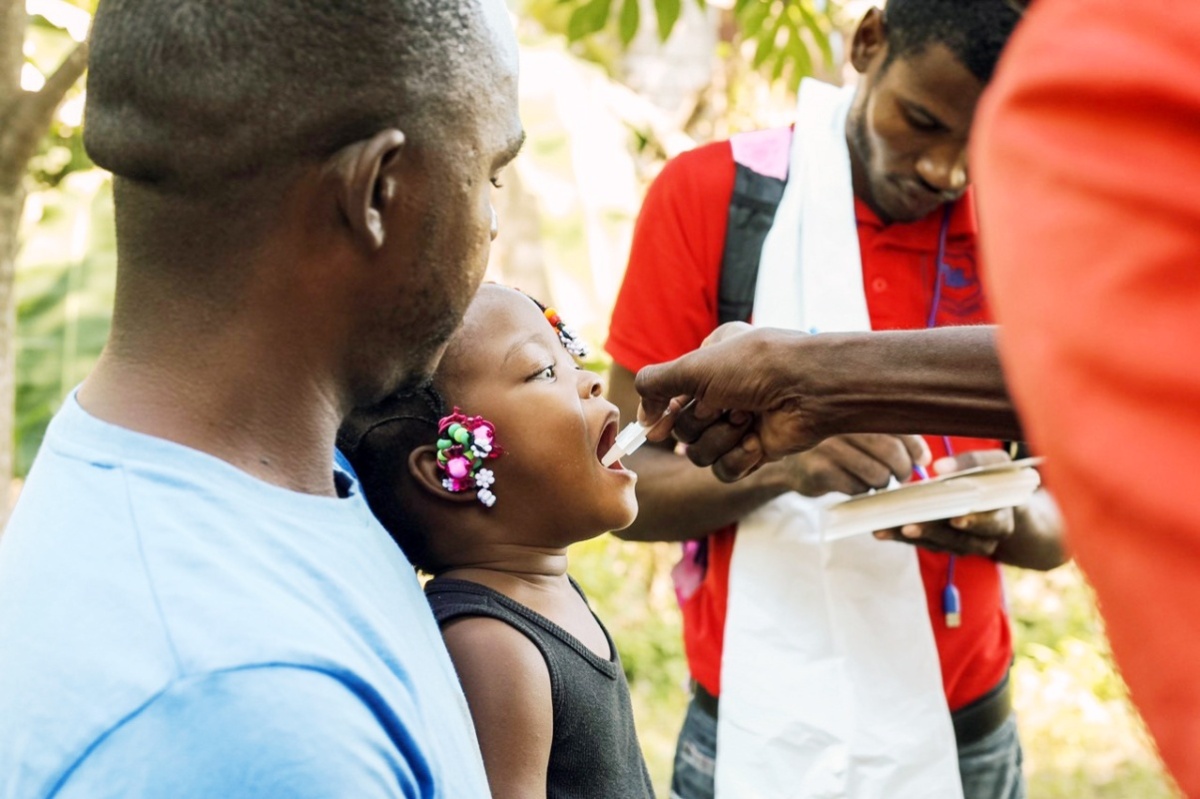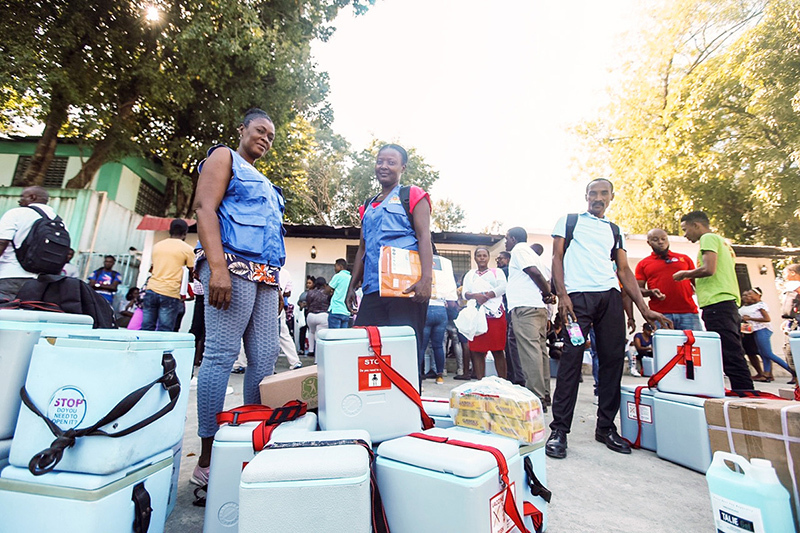Thousands Vaccinated Against Cholera in Haiti Following Outbreak
Weeklong campaign delivers single dose of vaccine, while care for the sick continues
Posted on Dec 22, 2022

Health workers this week launched a new cholera vaccine campaign, hoping to slow, and ultimately end, the current outbreak that has quickly spread throughout Haiti.
The weeklong campaign is led by the national Ministry of Health and Population (MSPP) with support from a team at Zanmi Lasante (ZL), Partners In Health’s sister organization in Haiti. The effort has so far reached more than 4,900 residents of the Mirebalais region in central Haiti and is expected to ultimately deliver a single dose of the oral vaccine, Euvichol-plus, to all eligible residents, about 105,390 people, health officials said. So far, nearly half of the vaccines administered have been to people over 15 years old, with the rest given to younger children.
"The goal is to vaccinate the whole commune with one dose of [the cholera vaccine] in order to reduce and stop the Vibro cholerae," said Dr. Ralph Ternier, ZL's director of programs, using the bacteria's scientific name and noting that many of the workers involved in the current campaign were the same people that fought the outbreak in 2010.
"The community health workers were successfully deployed and after four days we expect to reach one-third of the population," Ternier said. "ZL will put all the efforts to reach the target by the deadline" of December 28.
At the same time, the ZL team continues to treat cholera patients—3,000 people so far— at several facilities while grappling with chaotic conditions, such as widespread kidnappings and shortages of fuel, around the country. At the Hôpital Universitaire de Mirebalais (HUM), 80 beds for cholera patients quickly filled up and cholera treatment units at six other sites, including St-Marc, Petite Riviere, Verrettes, Jean-Denis, Boucan Carre, and Lascahobas, were established to care for additional patients.
As of December 19, Haiti’s MSPP reported 17,629 suspected cases of cholera, 14,972 hospitalizations, and 316 deaths. The majority of cases continues to be children under 5 years old, who are particularly at-risk due to widespread malnutrition, which leaves young immune systems more vulnerable to disease, physicians said.

Even as cholera surges around the world, the global vaccine stockpile has been depleted, according to the World Health Organization. That means the vaccine is currently being rationed; it is typically given in two doses, but since mid-October, health officials overseeing the global distribution of vaccines made the decision to recommend only one dose to stretch supply. One dose of the vaccine provides between six and 24 months of immunity, while the two-dose regimen delivered four weeks apart gives four years of protection. ZL-led cholera vaccination campaigns in recent years have included a two-dose regimen.
Cholera is caused by drinking water or eating food from sources that have been contaminated with the bacterium Vibrio cholerae. It is found and spread in places where people have inadequate or no access to sanitation and clean water.
People infected with cholera develop watery diarrhea, vomiting, and leg cramps. They can become dehydrated rapidly, go into shock, and may die within 24 hours if they do not receive care.
Cholera was not detected in Haiti until after the 2010 earthquake, when it was inadvertently introduced by United Nations security forces, sickening 820,000 people and causing nearly 9,800 deaths. After multiple, successful mass vaccination campaigns led by ZL and others, and a decision by the World Health Organization to create a cholera vaccine stockpile, cholera was declared eliminated from Haiti in February 2022. In late September, a new outbreak began in Port-au-Prince, quickly spreading throughout the country.
Support Our Work in Haiti
Staff work nonstop to care for the sick and immunize the community against cholera.

